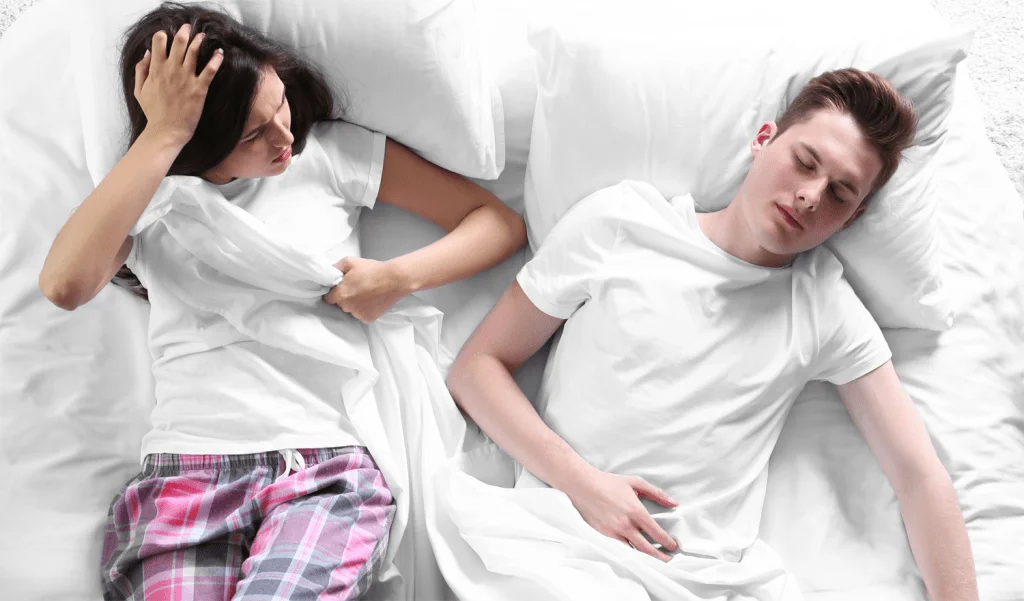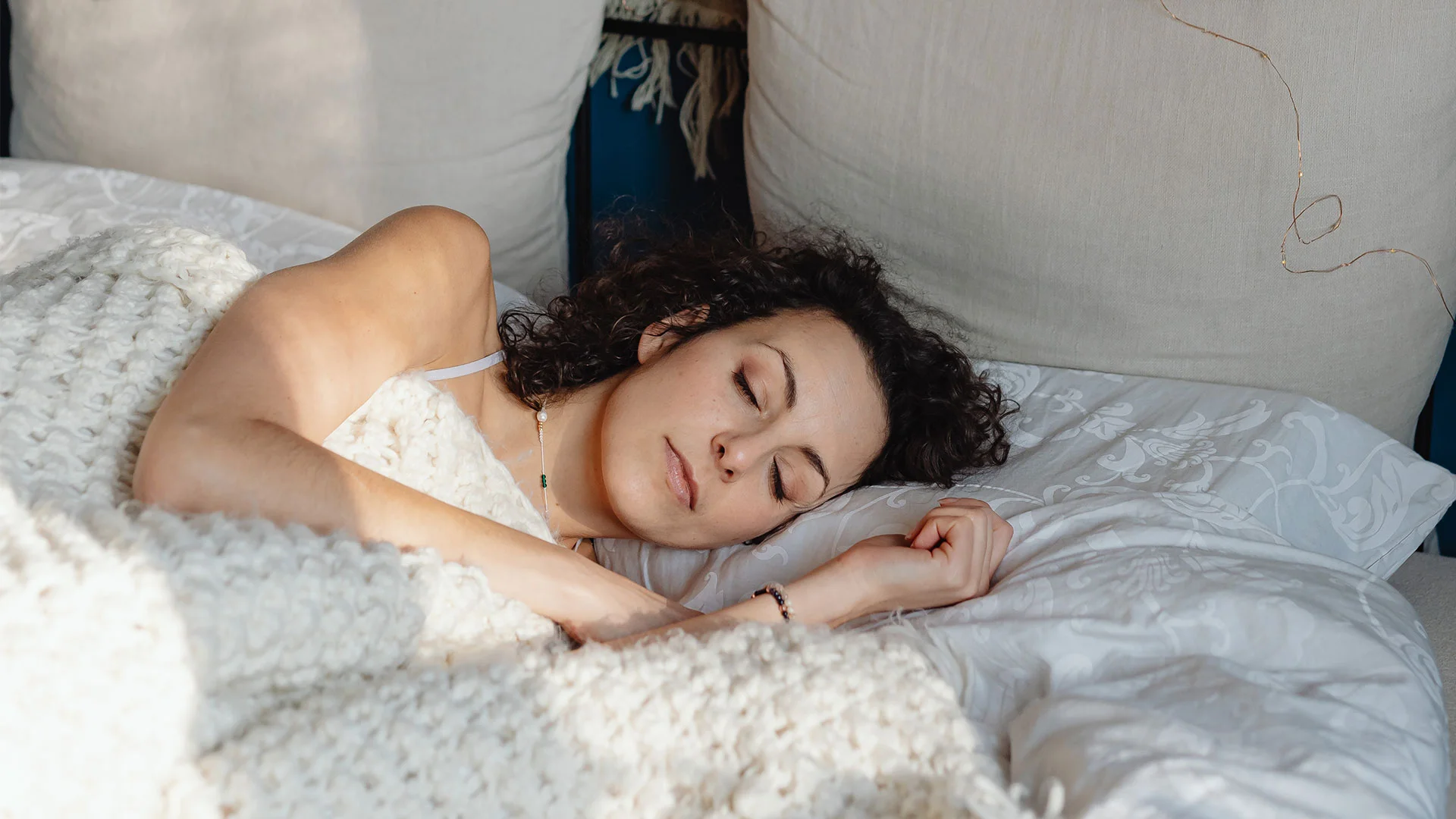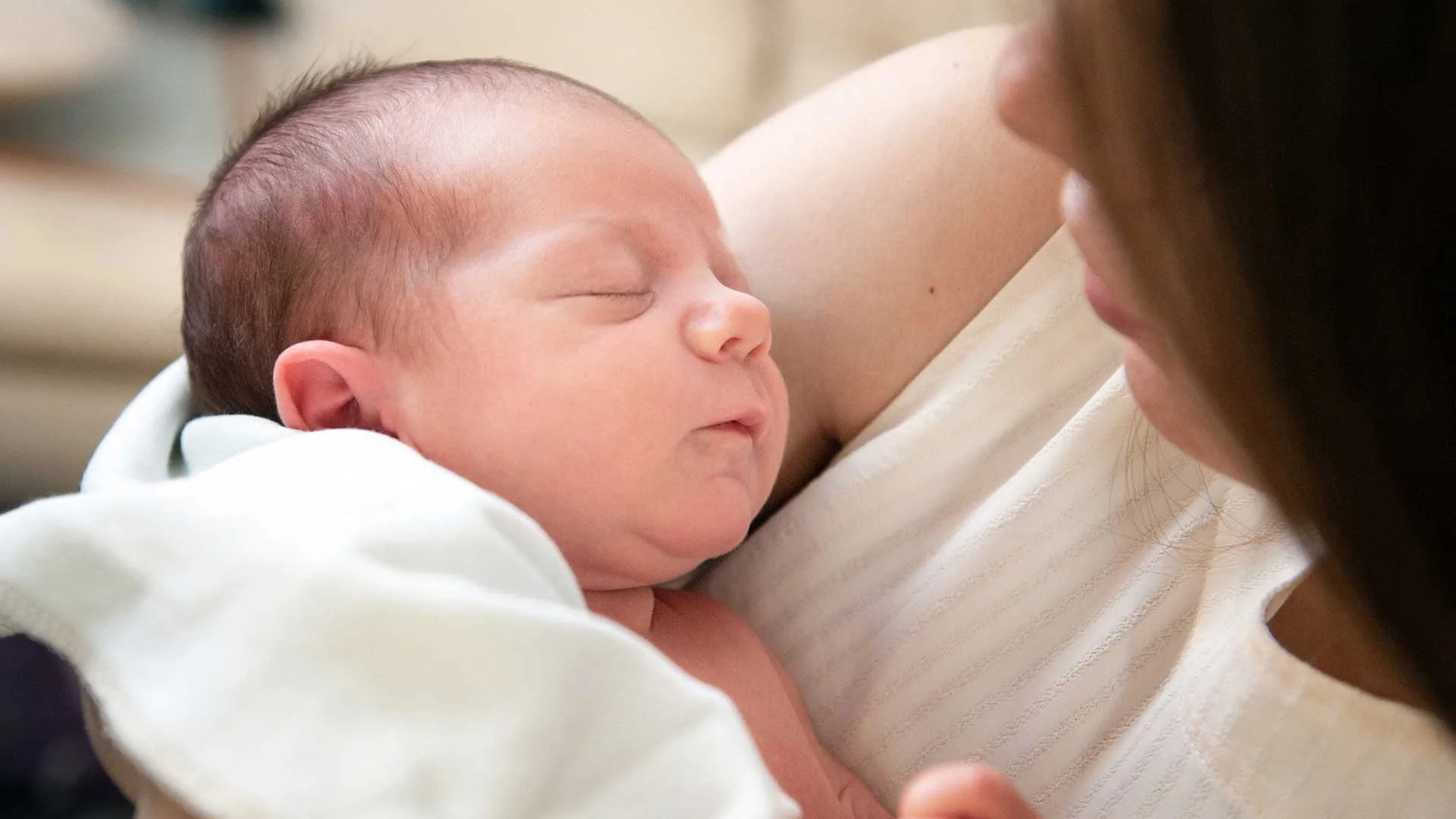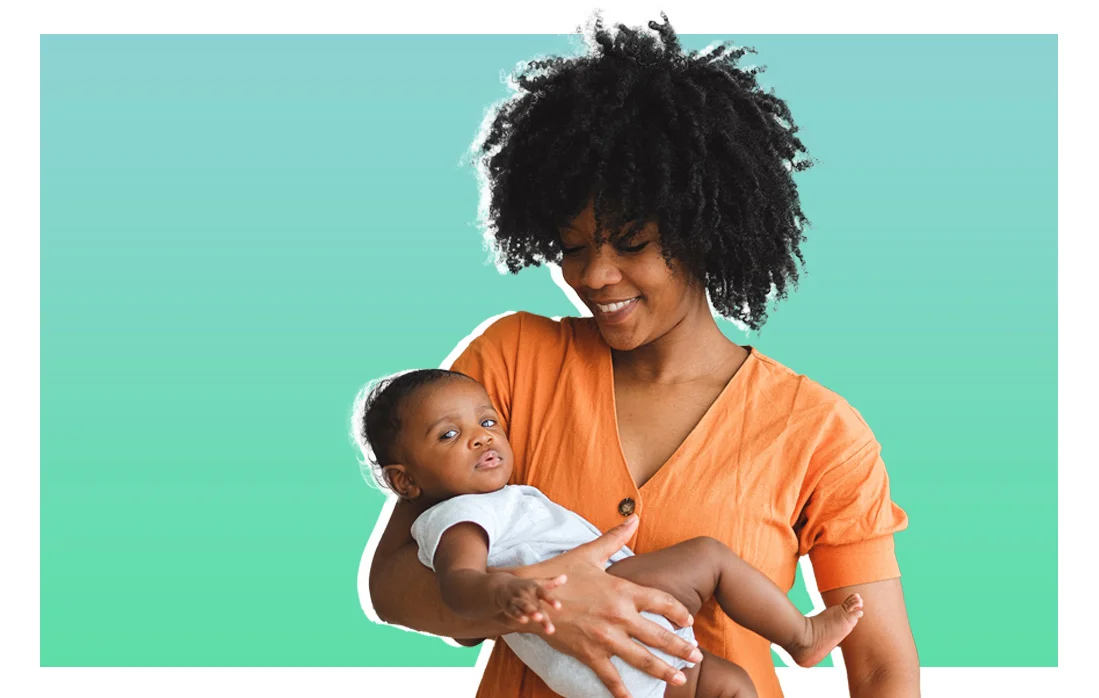
One in 3 adults in the United States experiences sleep deprivation, and 50 to 70 million have chronic sleep disorders, according to the National Institutes of Health. (1) Women, in particular, face unique challenges when it comes to sleep, with higher insomnia and sleep apnea rates, less sleep efficiency, and lower sleep satisfaction than men. While all Americans are experiencing an unprecedented increase in sleep issues, likely in part due to rising stress levels, women routinely are found to struggle the most.
Although there are many reasons why women have more sleep challenges, understanding possible sex-based physiological causes is vital for directing further research and medical care and so women and their loved ones can make lifestyle adjustments. In a recent research review, scientists have found a biological link contributing to women’s sleep struggles.
Inherent Differences In Women’s Sleep Biology
In a narrative review published in Sleep Medicine Reviews, an all-female team of researchers from Stanford, Harvard, and the University of Southampton discussed results from multiple sleep studies. (2) The review examines the effect of sex differences on sleep-wake and circadian regulation and the impact on metabolism. They found that sleep differences between men and women aren’t only societal but also observed in circadian rhythms.
For instance, melatonin secretion, which regulates sleep-wake cycles, and core body temperature peaking both begin signaling a shift to nighttime earlier in women than men. Additional research shows women’s circadian periods are shorter than men’s by around six minutes, which may be the underlying factor, according to Science Daily. (3)
Previous research has shown a higher prevalence of insomnia in women while also reporting that their sleep and circadian rhythms are more stable and less fragmented than men’s. (4) However, the Sleep Medicine Review findings show that women rate themselves as having lower sleep quality than men do and that their sleep quality is less consistent, lining up with menstrual cycle fluctuations.
What This Means, According to Experts
According to Dr. Catherine Darley, owner of The Institute of Naturopathic Sleep Medicine and Skilled Sleeper, the melatonin peak occurs earlier in women than in men, which means that women will be sleepy earlier in the evening and need an earlier bedtime. “When our core body temperature starts to drop in the evening, we become sleepy, which is another factor pushing women to have earlier chronotypes,” she explains.
Dr. Chelsie Rohrscheib, Head Sleep Expert and Neuroscientist at clinical sleep testing company Wesper, says that, on average, women require an earlier bedtime than men to get the highest-quality sleep.
Dr. Darley says women often push through being sleepy and keep going with tasks in the evening, but when you feel tired, it’s best to go to bed as your body is naturally set up for sleep, leading to a better sleep experience. A recent Gallup poll shows women aged 18 to 49 are less likely to get enough sleep compared to men, with only 36 percent of women reporting adequate sleep versus 48 percent of men. Similarly, a previous Sleepopolis survey showed that of respondents who reported difficulty falling and staying asleep, 61 percent were women, and 39 percent were men.
A lack of sleep can lead to serious health conditions like heart disease, hypertension, diabetes, and cardiovascular disease and affect concentration and memory, mental health, body weight, relationships, and overall quality of life. “Sleeping outside your natural circadian rhythm may have many negative biological effects, including reduced sleep time and poor sleep quality, as well as a negative impact on your metabolism,” says Dr. Rohrscheib.
But if you are accustomed to the effects of little sleep, you are likely to forget how much better it feels to be well rested. “When people are chronically sleep deprived, they lose sight of how very impaired their daytime performance and well-being are, says Dr. Daley.
How Women Can Improve Their Sleep
While making substantial changes to your lifestyle all at once might be out of reach, there are smaller steps you can take to work toward better sleep. “A good practice can be to prioritize sleep for ten days by getting the amount you do best with and noting how your daytime experience has changed,” says Dr. Darley.
Dr. Rohrscheib says women with male partners may need to go to bed earlier to ensure sufficient sleep. Although going to bed at the same time as your romantic partner is ideal for relationship intimacy, being short on sleep takes its own high toll on relationships.
One thing that is not likely to work is trying to force yourself into a different sleep pattern, whether to accommodate your partner or to complete household tasks. “This research really helps us understand how our biorhythms are hard-wired and, therefore, not very easy to shift. Although there are precise medical protocols that can be used to shift our body clocks, as soon as the protocol is stopped, we bounce right back to our natural set point,” explains Dr. Darley.
Hormonal shifts, stress, and anxiety can affect sleep quality, so it’s important to manage these with medical care and lifestyle adjustments. Try stress-reducing strategies, exercise regularly, and establish good sleep hygiene habits like limiting caffeine and alcohol intake before bed and following a consistent bedtime routine. Seek help if needed with options like Cognitive Behavior Therapy for Insomnia (CBT-I).
The research team behind the review says the underrepresentation of females in sleep research should be addressed, which is crucial since there is increasingly more evidence for sex differences in sleep. Understanding how biological differences impact sleep and health is necessary to create optimal sleep and circadian treatments that work for everyone.

10 Sleep Trends for 2024: Separating Fads from Science

Could Sleeping On Your Left Side Actually Improve Your Health? Doctors’ Answers May Surprise You

Babies Will Change Your Life, But Did You Know They Can Change Your Sleep Chronotpye, Too?

Guide to Postpartum Depression and Sleep: Tips for New Parents
Sources
1. National Heart, Lung, and Blood Institute; “What Are Sleep Deprivation and Deficiency?” NIH; https://www.nhlbi.nih.gov/health/sleep-deprivation
2. Renske Lok, Jingyi Qian, Sarah L. Chellappa; “Sex differences in sleep, circadian rhythms, and metabolism: Implications for precision medicine,” Sleep Medicine Reviews, Volume 75, 2024, 101926, ISSN 1087-0792, https://doi.org/10.1016/j.smrv.2024.101926.
3. University of Southampton; “Research uncovers differences between men and women in sleep, circadian rhythms and metabolism,” Science Daily; https://www.sciencedaily.com/releases/2024/04/240410112643.htm; April 10, 2024.
4. Pajėdienė E, Urbonavičiūtė V, Ramanauskaitė V, Strazdauskas L, Stefani A. Sex Differences in Insomnia and Circadian Rhythm Disorders: A Systematic Review. Medicina. 2024; 60(3):474. https://doi.org/10.3390/medicina60030474
Darley, Catherine. Author interview. April 2024.
Rohrscheib, Chelsie. Author interview. April 2024.


























